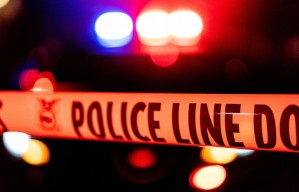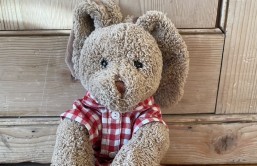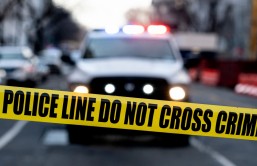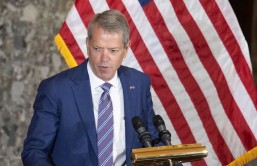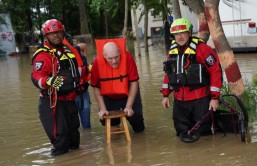You can count on one hand the phenomena that shaped modern culture, and you would be well advised to start with The Beatles, inarguably the most influential act in popular music history.
Of course, along with anything as frenzied as Beatlemania come myths, legends and rumors, as well as thousands of people who claim to know what really happened. Which is why Louise Harrison, the elder sister of the late Beatle George Harrison, set out to write the book "My Kid Brother's Band: a.k.a. The Beatles" in 2014, detailing the view from her front-row seat at monumental events like the band's debut on "The Ed Sullivan Show" in 1964.
Married to an in-demand engineer, Louise Harrison and her husband left Liverpool for Canada, South America and eventually Illinois, where she landed in 1963. She'd tote Beatles albums to local radio stations, asking them to play the records. When the band broke through and became a worldwide sensation, she was in the unique position to be able to separate fact from myth, which led to her becoming a Beatles radio reporter.
Now, more than 50 years later and still living in the States, Harrison is still a keeper of the Beatles' legacy, working with Branson, Mo.-based tribute band Liverpool Legends.
During a recent trip to New York City to promote the band's charity concert at Carnegie Hall, we sat down for soup with Harrison a stone's throw from Madison Square Garden - where her kid brother hosted the Concert For Bangladesh in 1971 - and chatted about the Harrison family, setting the record straight amongst a sea of rumors and Liverpool Legends, whose performances benefit Help Keep Music Alive, a group that raises money and awareness for school music and art departments in the U.S. As part of the program. Liverpool Legends performs alongside top high school music students with proceeds going to the SYTA (Student & Youth Travel Association) Youth Foundation.
How did you and Liverpool Legends get involved with Help Keep Music Alive?
I've said, "There's a problem to suit every taste." We were hearing all this news how the schools, particularly arts and music departments, were being defunded, and in many cases teachers were being fired because they weren't able to employ them, so we thought, OK, we're musicians, maybe there's something we could do to help. So we came up with a plan where we were putting the word out to music directors at schools across the country and urging them to get in touch with us, to go to LiverpoolLegends.com, and sign up, we have a page to help keep music alive, and get in touch with us and what we do is we send them the charts of the music that we play, and Beatle music is always acceptable, so then they spend two or three months having the children learn and then we make arrangements. As long as they have an auditorium that holds about 600, 700, we come to the school and do a concert with the students, have them play on stage with us.
What we have done in the past is we made these arrangements and had a house full of people, but because it costs us a lot to get there and to perform and sound support and everything, we now have a nonprofit organization so that hopefully we can get the public, maybe corporate sponsors or whatever, to put in some seed money for us so that our costs of doing business will be taken care of, and so when we actually do the concert then all of the money can go to the school. At the moment we've only been able to give a portion of the proceeds, but if we get funding from the public if they think what we're doing is a good idea and they want to give $10 or $20 or a corporate sponsor wants to give a couple million or whatever, then we can extend what we're doing, extend the program.
How would you describe your upbringing?
Oh, it was wonderful. That's the main reason I wrote the book. So many people across the planet have great admiration and respect for my brother, so I wanted people to know it wasn't just magic, it was his upbringing that made him that kind of person, and not only that, but John [Lennon] and Paul [McCartney] lost their mothers in their teenage years, so my mum was the mum for all three of them. So it was the values from my mum and dad that were very prominent in all of those lads' lives, and they lived with care and compassion and never ever faking that, just being real, and whatever it was, they were honest, and I just think mum and dad were just very compassionate and kind. I mainly wanted to give the background of what kind of a family we came from, and I just said on the show that I was just doing, if everybody had parents like the parents that we had, there wouldn't be any wars, there wouldn't be any nasty, horrible things going on in the world, because if you had that kind of upbringing and that kind of nurturing childhood, you just wouldn't be nasty to people, you'd be kind as well. So if that kind of thing could be all over the world, it wouldn't be the awful planet it is right now.
By the time The Beatles formed, you were already in the U.S., right?
Yes. When I met them all it was like getting a bunch of extra brothers (laughs). I already had three brothers, and it was like getting three more.
When people found out you were George Harrison's sister, did you get a lot more "friends"?
(Laughs) Oh yes, that's happened. But as far as real friends, I've been able to keep it to a minimum. I have loads and loads of what I call my extend family. All the Beatle fans in the world I consider them to be my family, because that was how my mum and dad treated them. When they answered the thousands of letters from fans, many times they would sign themselves "Love from Mum and Dad Harrison," and once the Beatles started coming to this country I would get letters from the fans and they'd say "I got a letter from Mum and Dad the other day" and I'd say, "They're stealing my mum and dad from me," but then I realized that there was enough love and kindness within them for everyone.
When you were at "The Ed Sullivan Show," did you realize the world was going to change because of it?
Not then, because my brother was so ill. He had a 104-degree temperature and strep throat, so my main concern at that point was that he could still be able to stand up, so I wasn't really aware of the other implications, just please help him to be strong enough to get through the show.
What impact did Beatlemania have on you and your family?
Quite a lot, because I accidentally... I had been trying to get the Beatle records played on radio stations throughout 1963, and during those days when the guys were in New York to do the show we also did a show in Washington, D.C., at the Coliseum. When we were in Washington, we were invited to the British ambassador's pad (laughs), house, palace, whatever, and during that particular visit there was an incident where some kid that was there that went up behind Ringo [Starr] and cut out a big chunk of his hair. Well, when I got back to Illinois, on one of the radio stations that I was familiar with, KXOK in St. Louis, in fact it was all over the country, that the British ambassador's wife, Lady Ormsby-Gore, had wrassled Ringo to the ground and cut a chunk off his hair. When I heard this on the radio I called the program director, who knew me because I had been trying to get him to play the Beatle records, and so I said could you please correct that story, because it was making a fool out of a very, very dignified lady. So he said OK, why don't you come on the air. I said no, no, I was too shy.
He corrected the story and then this was on a Friday, on the Monday he called me and said, "I've been thinking over the weekend, there's such a lot of interest in those guys and there's so many crazy stories about them, and you'd be in a position to know what's true, would you be interested in doing little daily reports about them?" So thinking about how much craziness was going on, I thought I could try, I've never done anything like that but I'll have a shot at it. Anyway that was the beginning of me becoming a Beatle report (laughs), and that snowballed eventually into doing reports on 21 different radio stations across the country in major places like Boston, New Orleans, New York, Minneapolis. So that started my radio career and I've been in it ever since more or less.
How was your relationship with the other three Beatles?
Just more or less sticking to just being George's sister and never, ever pushing myself. There were so many people frantically screaming around them all the time and I didn't want to become one of the mob, so whenever I was with them I was there with my brother and just being friendly with them as they were all my brothers, but I never pushed myself into the ins and outs of their lives. I think the two surviving ones would still be happy to see me because on the Beatle reports I was only sticking to what was really true as opposed to the nonsense that was going on.
Do you ever see Paul or Ringo?
I haven't seen Ringo in quite a while, but I saw Paul at the concert he did in San Diego at the end of 2014, and in fact I gave him one of my books. It was funny because the book's called "My Kid Brother's Band," and I always considered them all to me by kid brothers, and he looked down at the book and said, "your kid brother?" as if I was singling [George] out.
How did fame change George? He seemed to be a very private man. Did he withdraw?
They were so - what's the word - taken advantage of so much, and they were so open and without guile that it was difficult to understand what was going on. I think I said in the book that they didn't know that the knife was thrust in their back until somebody was pulling it out (laughs). After going through that for a number of years, you start to become aware and naturally start to be a bit defensive.
After John was murdered, were the other Beatles and their families scared that it could happen to them next?
I remember George saying, "it's time to kind of stay invisible," because I was in the public eye doing the radio reports. He said, "try to stay invisible, because I wouldn't want that to happen to you."
There are many theories on why the Beatles broke up. What's the real reason?
I don't want to get assassinated (laughs).
If I say a few theories can you tell me if they are true or false?
Well, there was one major thing that everybody knows.
OK. Yoko?
[Looks up from her soup, makes eye contact, but doesn't answer]
Lastly, what other projects are you working on?
I told you that my mum and dad used to answer hundreds of thousands of fan letters, so my mum used to write to me, and in the early Beatle days she would write about going to a show at such and such a place and people were screaming, and lots of people are coming knocking at the door all the time, or last night they couldn't get to the show without a police escort. So I got about 11 of these letters that I recorded, spoken word, so we're going to be putting that out, and it's called "Letters From Mum."

